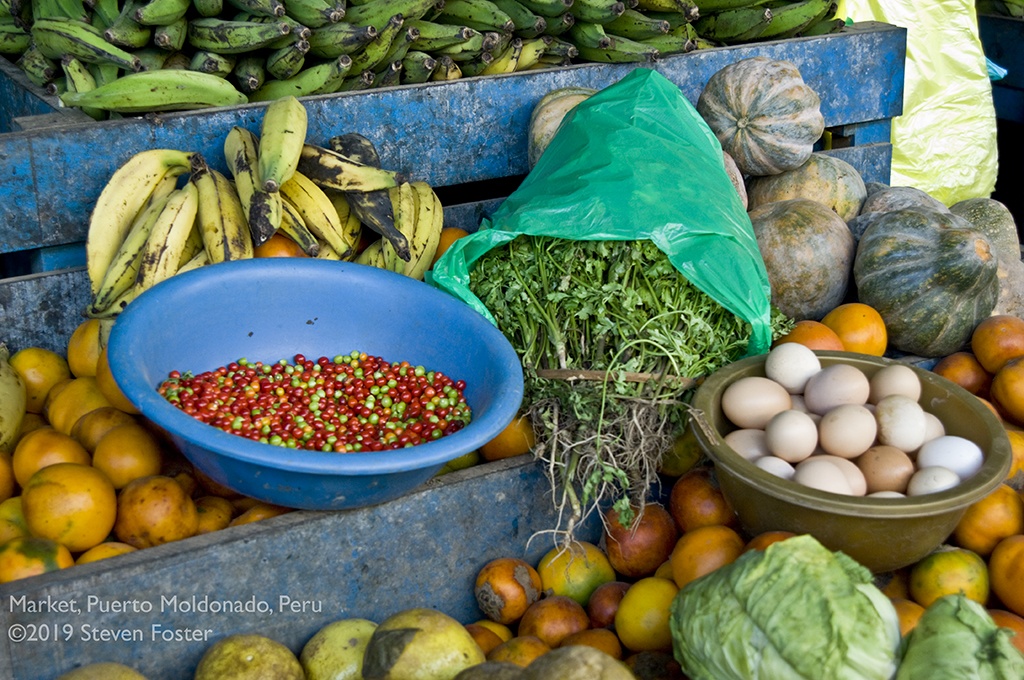A Guest Post by Bethany Davis

Bethany Davis is Director of Advocacy and Government Relations at MegaFood.
About 3 years ago, I was walking with Tom Newmark and Sara Newmark through their farm in Costa Rica. The weight of the information I had just received was heavy. “Just 60 years left” was cycling over and over in my mind. Tom was of course referring to the UN report from the previous year detailing the global desertification of our topsoil (you know, where we grow almost all of our food). He explained that if we keep farming the way that we currently do, we will effectively continue to kill our soil and run out of food. And a lot sooner than you think. They continued the tour, showing me how food can be more nutritious, soil can be healthier and improve over time, we can sequester vast amounts of carbon, and we can save the food supply if we simply move to a regenerative model of agriculture. Right then and there I was resolved, this would become my work. What else is worth working for if we can’t sustain life within our own lifetimes? And if not mine, then certainly those of my kids.
If you care about food security, or the planet, or if you eat food (yes that means all of us) then the message is clear. We have to rapidly refocus our efforts on saving the soil. In so doing, it turns out we can also save the planet and secure robust food systems for centuries to come.
If you have explored this site you know there is a lot of work to be done. And it can be a bit overwhelming to know we are warming the oceans and the climate, eroding and degrading our soil, poisoning our water and our kids and pets and creating so much waste and plastic that we aren’t sure what to do with all of it. And if we remain in a state of inaction, then we will have too big of a problem on our hands to do anything meaningful about it.
A Shift in Consciousness
I chose action. The efforts of my company, MegaFood, and of me personally are wholly focused on regenerating the soil and spreading the word about the predictable results of a failure to do so. We have a beautiful vision of the future and the pain of our current climate crisis paired with our soil crisis (they are inextricably linked) has motivated us to work to achieve the changes we want to see.
It depends on a shift in consciousness. We believe in the power of business as a force for good. We can either respond to the current environmental crisis with despair, frozen into inaction by fear. Or we can create a vision for the world we want to be a part of. This includes companies that we want to be a part of and support, because companies have a huge amount of influence globally. The evidence is clear that consumers don’t just want products, they want companies that believe in something and make a difference. At this point any company that’s not focusing on their global impact and their ability to help the planet is behind the times. We have seen clear evidence of companies being torn apart by consumers for putting profits over the planet and over people. This is a huge opportunity for companies to decide what kind of change they want to create in the world and to go do it. Focus on your supply chains, your waste, your energy usage, how you treat your employees and people in need. How do you begin? Below are some recommendations.
B Corps
Becoming a B Corp is a best place to start. A B Corp is a business that meets the highest standards of verified social and environmental performance, public transparency and legal accountability to balance profit and purpose. B Corps are accelerating a global cultural shift to redefine success in business and built a more inclusive and sustainable economy. B Corps are not only responsible to traditional shareholders, the planet actually becomes a shareholder in this model. There are many formidable companies in the food industry that are certified B Corps including Ben & Jerry’s, Annie’s Homegrown and the largest B Corp, Danone Whitewave. In herbal products and dietary supplements, MegaFood, Herb Pharm, Traditional Medicinals, Pukka Herbs, and New Chapter lead the way.
MegaFood chose to become a B Corp because it was a natural evolution. We already considered the planet a stakeholder, but now it’s official. We also enjoy the progressive nature of the standard and the certification process. You have to continue to get better, continue to evolve. Keep making bigger steps in the right direction. We believe this is the exact type of contagious and exciting pressure that the world needs right now.
Regenerative Agriculture
You can also join the growing number of companies focused on soil regeneration as a method for carbon drawdown and food stability. If you use agricultural components as part of your supply chain and you’re not shifting away from the non-sustainable methods of agriculture on which we currently rely, then you are not being a good steward of your company. There are emerging certifications that you can look for within your supply chain to ensure sustainability in the ingredients that you buy. USDA Certified Organic, Non-GMO Project Verified, B Corp Certified, and Regenerative Organic Certified all consider sustainability as a part of their practices.
Organic is the most popular but unfortunately organic certified land is less than 1% of land globally For the other 99% of supply chains, the Green America Carbon Farming Network standard is being led by MegaFood, Ben & Jerry’s, Annie’s and WhiteWave Danone and others. This is a soil health measurement standard that is practice agnostic and only focused on outcomes. We don’t care what farming methods you use, as long as you are drawing down carbon and yielding increased soil health. Of course, recommendations for success are offered, but none are required. The only requirement is soil regeneration. It can be used with any of the other certifications previously mentioned.
For MegaFood, we are all in on regenerative agriculture. Our advocacy and activism efforts are focused on national agricultural policy work to ensure changes that will move us towards soil health (and the health of the people and farm workers). We have created an internal sourcing standard with an advisory board of agricultural and scientific leaders that will move our Farm Fresh Partners along the continuum towards increased soil health (with financial incentives built in). And we are leading with our work with Green America to encourage as many companies as possible to adopt our pilot when it is complete.
Where to Begin?
Beginning can be daunting. Start by reaching out to the Green America Carbon Farming Network. Investigate organic and regeneratively-grown ingredients for your company. Join our coalition of companies working to reduce chemical inputs like antibiotic Glyphosate as a part of our Advocacy efforts with the Environmental Working Group. Create a campaign of your own! Now is the time to activate.
There are also great companies that help you evaluate your supply chains. Partners to consider include TerraGenesis, Propagate Ventures, and the Carbon Underground. Join the Regen Network to learn more. And if you are in the natural products industry, consider becoming a part of the Climate Collaborative and taking part of the educational activities at Expo West on March 5th, 2019.
There is so much you can do, so why not use your company to help create that future that you want? It’s good for you, it’s good for the planet and its good for your company.
Bethany Davis is the Director of Advocacy and Government Affairs for MegaFood. She is the President for the Coalition for Supplement Sustainability, a group of supplement and ingredient companies that united to support a non-GMO and sustainable supply chain. In addition to her service on the Board of Trustees for the American Botanical Council and the SHP Advisory Group, she is also a member of the American Herbal Products Association Board of Trustees. Bethany is deeply engaged with agricultural issues including Regenerative agricultural practices, Sustainability and Transparency as they relate to the supplement industry. She holds a Masters of Science in Regulatory Affairs and Health Policy from Massachusetts College of Pharmacy in Boston, MA and is a certified coach with the Conscious Leadership Group.


Comments